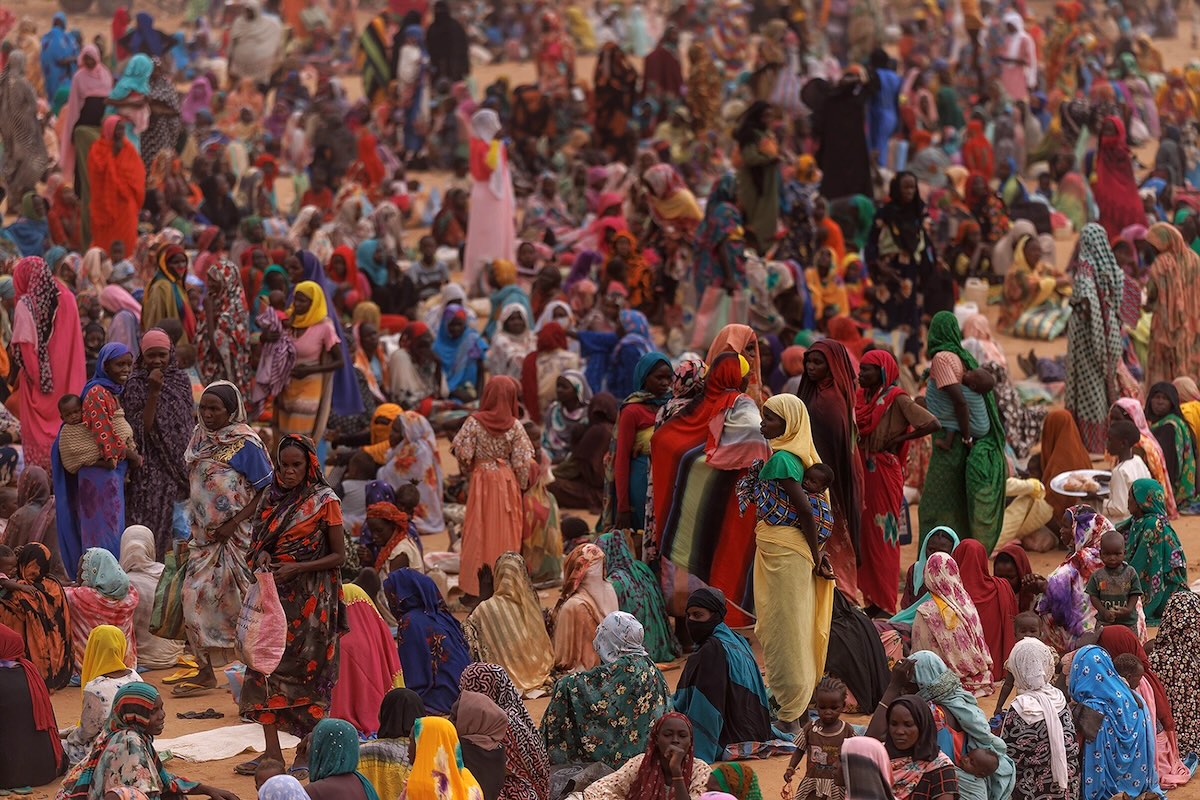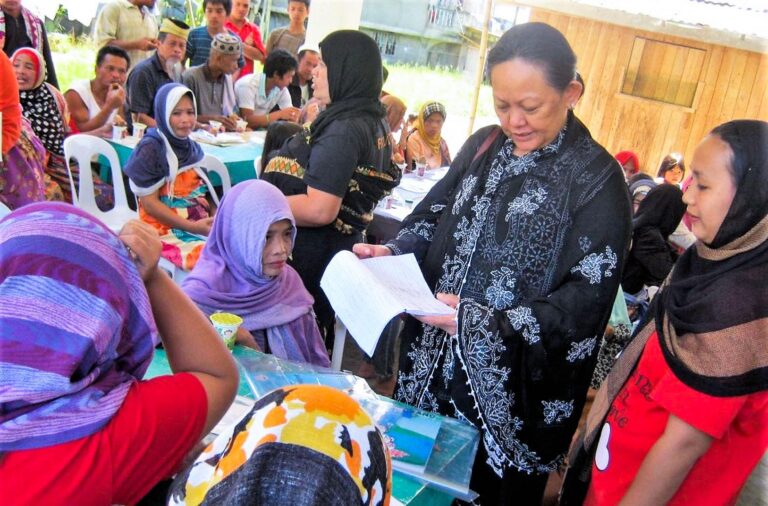by Yoomi Jun for UN Women: Asia and The Pacific
Amina Rasul is President of the Philippines Center for Islam and Democracy (PCID) and Chair of ASEAN Women for Peace Registry. PCID organized dialogues among civil society organizations that provided input to the drafting of the ASEAN Regional Plan of Action on Women, Peace and Security. ASEAN, the Association of Southeast Asian Nations, adopted the plan in November 2022.
What inspired you to start working on women, peace and security?
First and foremost, I am a democracy advocate. During the time of the late President Corazon Aquino, I was appointed as one of the commissioners of what is now the Philippines Commission on Women, representing Muslim women. That’s when I got my eyes opened on women, peace and security issues.
Later, working at PCID, it became clearer that where women are active and playing a leading role, peace is sustainable and democracy lasts. As I got more engaged internationally, I learned that my friends in ASEAN countries have done so much work empowering women in their communities. We are continuing to push for expanding the women network together with my friends, some of who are also members of ASEAN Women for Peace Registry, to get more women actively involved.
What are some of the milestones that you have seen in the Philippines in your advocacy on women, peace and security?
We have had female leaders in peace and security such as the Presidential Advisers on the Peace Process including Teresita “Ging” Quintos Deles and late Annabelle Tecson-Abaya, and had Prof. Miriam Coronel Ferrer as the chief negotiator of the Government during the peace process with the Moro Islamic Liberation Front (MILF). It was a historic moment to have Miriam become the first woman in Asia to successfully conclude and sign a peace agreement. There were CSOs who tirelessly helped to lobby for support of the negotiations. Although unseen by the public, the CSO participation helped in changing the opinion of MILF so they become more open to women participating and advising them.
The implementation of National Action Plan for Women, Peace and Security was another very important milestone. Now the NAP is in its fourth generation and we want to see more financial support for the implementation of the plan. The Bangsamoro regional government created its own regional action plan on women, peace and security led by the Regional Commission for Bangsamoro Women. This has demonstrated the ability of political women to work with men who are running the MILF and the regional government.
PCID has facilitated dialogues among civil society organizations on women peace and security. What are some of the key findings?
Region-wide, the majority of the civil society representatives agree that the space for them to operate is shrinking. So, the need to include CSO participation in the RPA WPS was repeatedly stressed.
Additionally, many conflicts in Southeast Asia are ethnic and religion-based. We need to do a lot more in getting the religious leaders to appreciate the role of women in peace and security and to change some fundamentalist ideas around gender. Another area is to work with women entrepreneurs. It is challenging but they can influence the politicians.
Amina Rasul with His Holiness Pope Benedict XVI. She was one of 20 Muslim leaders, and one out of two women invited to the First Catholic-Muslim Forum in Rome 4-6 November 2008.
What are your expectations for the ASEAN regional action plan?
ASEAN’s way of working is by consensus. When you have attained consensus, support for decisions made becomes more concrete and strong.
Still, you keep wondering, how can you speed it up a little bit? The RPA WPS is a leverage that we can use to reach out to those especially in the Governments of ASEAN. But external groups, especially UN Women, will have an important role to play as you can bring different actors together.
What role can the ASEAN Women for Peace Registry play in implementing the plan?
The Registry has a big role to play. The majority of people in the ASEAN region don’t really know what the WPS agenda is. Members of the AWPR are academics, in governments, and civil society leaders. We can network, help organize discussions, be messengers, advocates or lobbyists for WPS and the RPA.
Lobbying with the ASEAN Secretariat and our own government is an important role. For instance, we are discussing on how AWPR can be more active so we can make actual inroads, even all, in supporting women in Myanmar or Thailand and to see what each of us can do to help flesh out what is already in the RPA WPS. It may be challenging but not a single one of us is about to give up.

New Legal Tool Could Mean Remedy for Villagers in South Sudan
‘Universal Jurisdiction’ being used in Swedish court stems from Nuremberg war crimes trials By Kerul Dyer A new chapter has begun in the largest court case in Swedish history that

